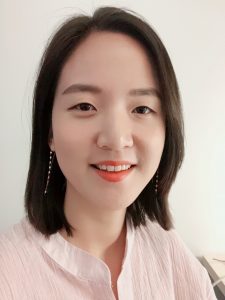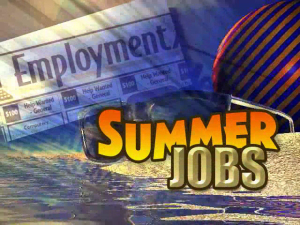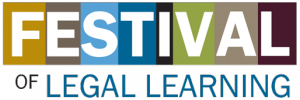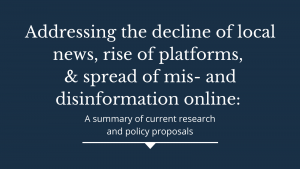The UNC Center for Media Law and Policy is thrilled to announce the winners of the third annual James R. Cleary Prize for the best student published scholarly articles on media law and policy.
This year’s first place winner is Scott Memmel, a 2020 graduate of the University of Minnesota Hubbard School of Journalism and Mass Communication, for his article, “Crossing Constitutional Boundaries: Searches and Seizures of Electronic Devices at U.S. Borders,” which was published in Communications Law and Policy. Memmel’s article examines searches and seizures of electronic devices at U.S. borders and “seeks to chart the legal landscape by (1) providing key background information, (2) discussing the First Amendment angle of warrantless searches of journalists’ devices, and (3) detailing the split among federal circuit and district courts regarding the Fourth Amendment question of whether border agents need reasonable suspicion to conduct forensic searches of electronic devices.”
The second place winner is Jeeyun (Sophia) Baik, a 2021 graduate of the USC Annenberg School for Communication and Journalism. Her article, “Data privacy and political distrust: corporate ‘pro liars,’ ‘gridlocked Congress,’ and the Twitter issue public around the US privacy legislation,” was published in Information, Communication & Society. Baik’s article “explores how emerging US data privacy regulations are discussed at state and federal levels, examining Twitter discourse around Senate public hearings on data privacy and public forums on the California Consumer Privacy Act (CCPA).”
Memmel will receive a $1,000 cash award and Baik will receive $500.
Scott Memmel, M.A., Ph.D. is a postdoctoral associate at the University of Minnesota Hubbard School of Journalism and Mass Communication (HSJMC), where he earned his Doctor of Philosophy degree in 2020 and his Master of Arts degree in 2017.
Memmel’s research, which focuses on media law, history, and ethics, has appeared in several respected publications, including Communication Law & Policy. His dissertation and upcoming book to be published by the University of Missouri Press focus on the history and law of the press-police relationship in the United States. Memmel’s dissertation, “Pressing the Police and Policing the Press: The History and Law of the Relationship Between the News Media and Law Enforcement in the United States,” was awarded the 2021 Association for Education in Journalism and Mass Communication (AEJMC) Nafziger-White-Salwen Dissertation Award and the 2020 University of Minnesota Hubbard School of Journalism and Mass Communication Ralph D. Casey Dissertation Research Award. Memmel has worked for several years at the Silha Center for the Study of Media Ethics and Law, where he previously served as editor of the Silha Bulletin, a thrice-yearly publication focusing on current events related to media law and ethics.
Memmel also teaches several courses at the University of Minnesota, including mass communication law and media ethics. Previously, he held several roles at WSUM 91.7 FM while completing his Bachelor of Arts degree at the University of Wisconsin.
Jeeyun (Sophia) Baik is an incoming postdoctoral researcher at the Center for Long-Term Cybersecurity at UC Berkeley School of Information. She earned her doctoral degree from the Annenberg School for Communication and Journalism at the University of Southern California. Her research explores socio-political implications of media/technology law and policy for those at the margins of society. She particularly examines various stakeholders’ engagement in the governance of media and information technology, covering the issues of privacy/surveillance, content moderation, and mis/disinformation.
Baik’s dissertation closely investigated the “civil right” of data privacy as a regulatory alternative to address discrimination and structural inequities being reinforced in the digital era. Mapping civil society perspectives onto the data-driven political economy and emerging US privacy laws (e.g., California Consumer Privacy Act), she articulated the limitations of traditional privacy regulations and suggested new ways to collectively envision a more just framework.
Baik’s research has been published in Information, Communication & Society, Telematics & Informatics, International Journal of Communication, and Mass Media & Society. Baik also holds a BA in International Relations from Seoul National University in South Korea, and a master’s in Public Diplomacy from the University of Southern California. She produced broadcasting news prior to the doctoral program.
You can read more about the Cleary Prize competition here. Please check the Center’s blog for an announcement of next year’s deadline to apply.
Congratulations to the winners!



 Are you interested in pursuing a career in media law or policy? Are you worried that you won’t be able to take that plum summer job in Atlanta, Los Angeles, New York, or Washington, because it’s just too expensive to live there? Or perhaps you’ll be working remotely from Chapel Hill (or elsewhere) and the job doesn’t pay very much?
Are you interested in pursuing a career in media law or policy? Are you worried that you won’t be able to take that plum summer job in Atlanta, Los Angeles, New York, or Washington, because it’s just too expensive to live there? Or perhaps you’ll be working remotely from Chapel Hill (or elsewhere) and the job doesn’t pay very much?
 One of the biggest annual events at the UNC School of Law is the
One of the biggest annual events at the UNC School of Law is the 